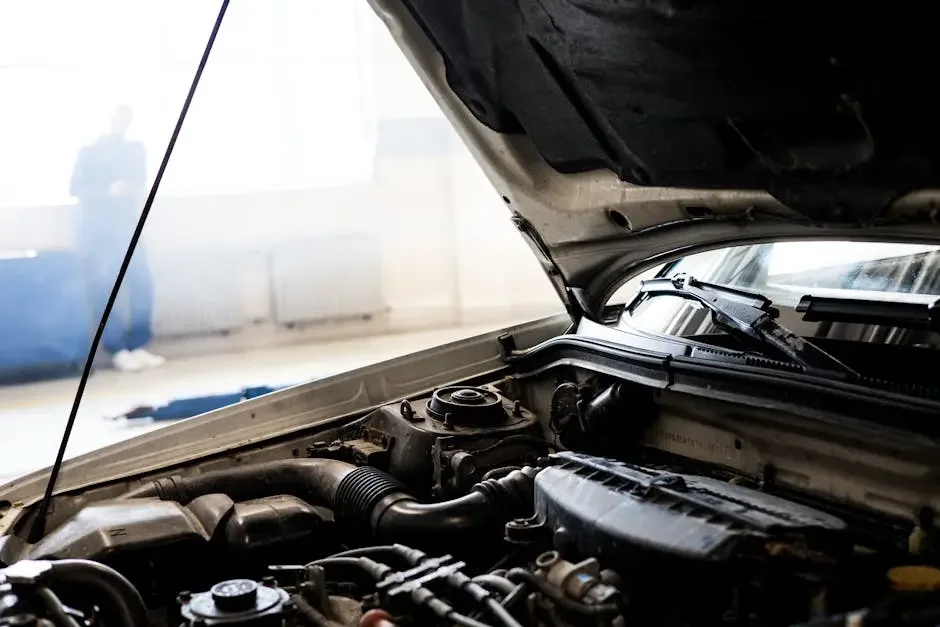Revitalize Your Ride: Maintaining Engine Blocks
Maintaining your vehicle's engine block is crucial to ensuring longevity and performance. Neglecting this vital component can lead to costly repairs and reduced efficiency. In this blog, we're going to explore practical tips and tricks for keeping your engine block in top shape, turning potential car trouble into smooth rides.
Understanding the Engine Block
The engine block is the heart of your vehicle's engine, housing essential components that convert fuel into motion. This section will break down its structure and significance in a friendly and easy-to-understand manner.
To truly grasp the importance of the engine block, imagine it as the central powerhouse where all magic begins. It's not just a lump of metal; it’s a meticulously engineered assembly that supports the cylinders, facilitates combustion, and manages the engine's overall cooling system. When you think of your vehicle’s performance, remember that the engine block plays a pivotal role in that dynamic.
Moreover, the materials used in modern engine blocks have evolved tremendously. From cast iron to aluminum, each choice impacts weight and thermal efficiency. Understanding these aspects not only helps you appreciate your car’s structure but also sets the foundation for maintenance tips that follow.
In summary, knowing what the engine block is and how it functions will empower you as a car owner. Instead of viewing the engine as just another component, recognize it as a symphony of parts working together, where the engine block is the conductor.
Common Issues with Engine Blocks
Engine blocks can face various problems, from cracks to overheating. In this section, we'll discuss common issues you might encounter and how to identify them early.
One of the most prevalent issues with engine blocks is cracking. This problem could arise from several factors, such as extreme temperature changes or a lack of proper cooling. If you notice signs of coolant leaks or odd engine noises, it's crucial to investigate. Early detection can save you from a world of costly repairs, preserving your ride's vitality.
Another major concern is overheating. When an engine block gets too hot, it can warp, causing significant and often irreversible damage. To keep an eye on this, regularly check your temperature gauge during drives. If the needle creeps into the red zone, pull over immediately and give your engine time to cool down. Remember, an ounce of prevention is worth a pound of cure!
Additionally, oil leaks can be a telltale sign that something's amiss with your engine block. Oil not only lubricates the engine components but also helps in heat management. Without it, you can run into dire troubles. Keep an eye on your garage floor for any irregular spots, as these can alert you to underlying issues before they escalate.
Essential Maintenance Tips
Regular maintenance is key to prolonging the life of your engine block. We'll cover essential tips, such as checking coolant levels, inspecting for leaks, and maintaining proper oil levels.
First and foremost, monitoring your coolant levels is vital. Your engine's health heavily relies on effective cooling. Make it a routine to check the coolant overflow reservoir weekly. If you're frequently topping it off, that could be indicative of a bigger issue at hand. Always use the recommended coolant type for your vehicle, as mixing different kinds can lead to chemical reactions that harm the engine.
Next, performing a visual inspection for leaks should become a consistent part of your maintenance habit. Set aside a few minutes after every oil change to look around the base of the engine for small droplets or stains that might signal trouble. This simple practice can save you a hefty sum if you catch a leak before it worsens.
An equally important aspect is oil maintenance. Regular oil changes not only keep your engine block well-lubricated but also remove harmful particulates that could create friction and damage your engine. Check your oil levels monthly and change the oil according to your manufacturer’s recommendations to keep the heart of your vehicle humming smoothly.
When to Seek Professional Help
Sometimes, you'll need to call in the experts. This section will help you determine when it's time to seek professional assistance for your engine block maintenance.
Even the most diligent owner may run into issues that require professional expertise. If you've gone through the basic checks—coolant levels, oil consistency, and visual inspections—and still face engine problems, it’s best to consult a mechanic. Unexplained noises or vibrations can indicate serious issues within the engine block that average DIY fixes won’t resolve.
If you notice a drastic drop in performance, such as slower acceleration or reduced fuel efficiency, don’t ignore it. These symptoms often reflect underlying abnormalities in the engine block. It's often better to be safe than sorry when dealing with something as crucial as your engine.
Lastly, if you encounter more than one issue simultaneously, it’s a strong indicator that something may be amiss with the engine block. Professional mechanics have diagnostic tools that can help identify problems faster and more accurately than trial and error. Utilizing their expertise not only saves time but can also potentially save considerable money down the road.
DIY Maintenance Techniques
If you're feeling hands-on, there are several DIY techniques you can use to maintain your engine block. We'll guide you through some simple checks and tasks you can do without professional help.
One of the simplest things you can do is a thorough cleaning of your engine block. A clean engine isn’t just aesthetically pleasing; it also helps prevent overheating and identifies any leaks early. Use a degreaser and a gentle brush to clean the engine surface and remove any built-up grime and grease.
Additionally, regularly replacing your air filter improves engine performance, making it an easy yet impactful task. A clogged air filter hinders airflow, which can affect combustion efficiency. Changing it out every 10,000 to 15,000 miles is a great rule of thumb.
Finally, consider investing in a simple oil analysis kit. This tool helps you understand the condition of your oil, giving insights into when it requires changing. By being proactive, you’ll keep your engine block in great shape and minimize the chances of unexpected breakdowns.
Final Thoughts on Engine Block Maintenance
By following these maintenance tips, you can ensure that your engine block stays healthy and your vehicle runs efficiently. Remember, a well-maintained engine not only enhances your driving experience but also adds to the longevity of your vehicle. Make engine block maintenance a regular part of your car care routine, and you’ll enjoy a smoother, more reliable ride for years to come.

